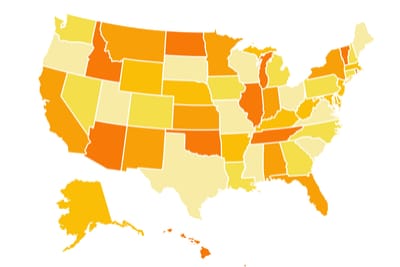There are many different paths to a teaching job, and many different kinds of teaching positions. If you’re considering a career as an educator but aren’t sure exactly what you want to do in that field, it’s important—and fun!—to explore all the possibilities.
Training options
Mind you, not all teaching positions actually require extensive training. But many of them do require training, because they require to get a teaching license. There are several different ways you can train to become a teacher.
There’s university training, where you get a bachelor’s degree, master’s degree, or post graduate certificate of education. If you don’t already have a bachelor’s, getting a four year degree in teaching to start with can be your fastest path into the classroom. A master’s degree in teaching will get you the highest starting salary, but can also make you seem overqualified (or too expensive) in the eyes of some employers. A post graduate certificate of education is not a full degree, but can be added to the degree you already have so that you’re certified to teach in your field of study.
There are also numerous options for alternative certification. With alternative certification, you can start to teach while you complete your training and get certified. Alternative certification paths are more affordable than university degrees, and are sometimes even free. (Teach For America is a well-known example of alternative certification that costs no money, and comes with full teacher salary.)
Specialization options
You also have many choices on what subjects you’ll specialize in teaching. If you like the idea of teaching a variety of subjects, an elementary education license may be for you. If you love math, science, English, or another school subject, getting licensed is one of your passions is a good option too.
If you’re not particular about which subject you’ll teach but want to have good job security and opportunities in many different school districts, you may want to consider a career teaching special education or ESL/bilingual classes.
Special education is a particularly challenging teaching field—working with disabled or emotionally disturbed students can be intense. But it’s rewarding work where a good teacher can really make a big difference. And because of the difficult nature of the work, teaching jobs in this field are plentiful and tend to pay higher than other positions.
ESL is in similar high demand and is similarly challenging. It can be hard to teach English to children with limited previous exposure to the language, and working with parents is sometimes very difficult due to language barriers. Dedicated teachers who receive TESOL training are always in high demand.
Employment options
The kinds of employers and employment out there for teachers are really almost limitless. Mike McGarry gives a good rundown on three of the largest categories of schools: public schools, parochial schools, and independent private schools. Another significant source of employment are international schools, schools from around the world that teach the children of expatriates.
Public schools nearly always require a teaching license for their full teaching positions, although unlicensed teaching may be available on a short-term basis for high needs subject areas. (Short-term unlicensed teaching is most often available for Special Education and ESL teachers, as mentioned above.)
In recent years, parochial schools are becoming more and more likely to require a teaching license for their instructors. However, there are still many instances where unlicensed teachers can be hired into parochial classrooms, especially if they are in the process of earning their teacher certification or have obvious expertise in their subject area. Private independent schools genearlly don’t require a teaching certification, but do expect their teachers to have advanced degrees, possibly even doctorates.
In his post, Mike also touched on “out of the box” teaching experiences, such as Quaker run schools that offer students silent meditation experiences, and schools that emphasize study abroad activities and other adventure-oriented learning experiences. There are many different ways to each out of the box—Montessori schools offer alternative teaching experiences based on specific learning theories. Charter and magnet schools may teach all of their classes with emphasis on a specific subject, such as art, business, or engineering. And there are limitless other fun teaching experiences unique to individual schools.
There is one other significant option for teaching that may not require any teacher training and sometimes doesn’t even require a degree of any sort: overseas teaching of English as a Second Language. Many countries will hire anyone who is a native English speaker to teach English in public schools or private academies. Currently, East Asian nations such as China, Korea, and Japan offer the most opportunities in this field, although ESL teaching jobs are available on every continent. Check out websites such as Dave’s ESL Café or the ESL Teacher’s Board to investigate this option.





Leave a Reply